Covid-19 fake news
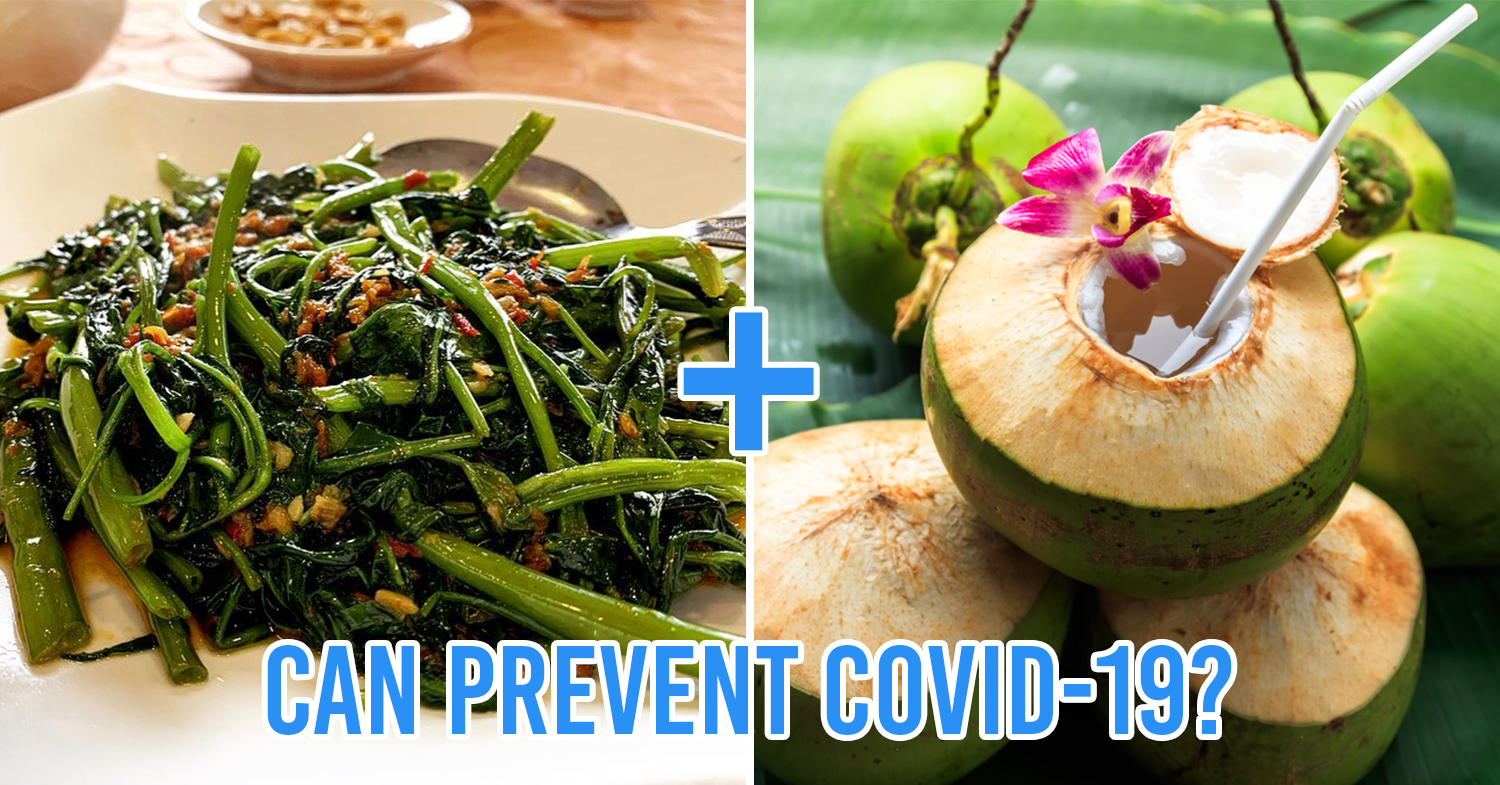
Image adapted from: @whateverfloatsyourboat and Hello Sehat
Whenever a big world event happens, fake news stories are bound to follow soon after, and the recent Covid-19 outbreak proves just that. They’re spread across all possible platforms of communication from spam messages on WhatsApp group chats to trending hashtags on Twitter, making anyone susceptible to believing these often unfounded rumours.
In order to arm yourselves against these false reports, here’s a look at some of the fake news that you may have seen while scrolling through the internet:
1. Mandarin oranges are carriers of Covid-19
Reports about mandarin oranges being carriers of coronavirus were perhaps among the first fake news stories to have emerged in Malaysia. These claims spread like wildfire across all popular social media platforms, including WhatsApp, Twitter, and Facebook.
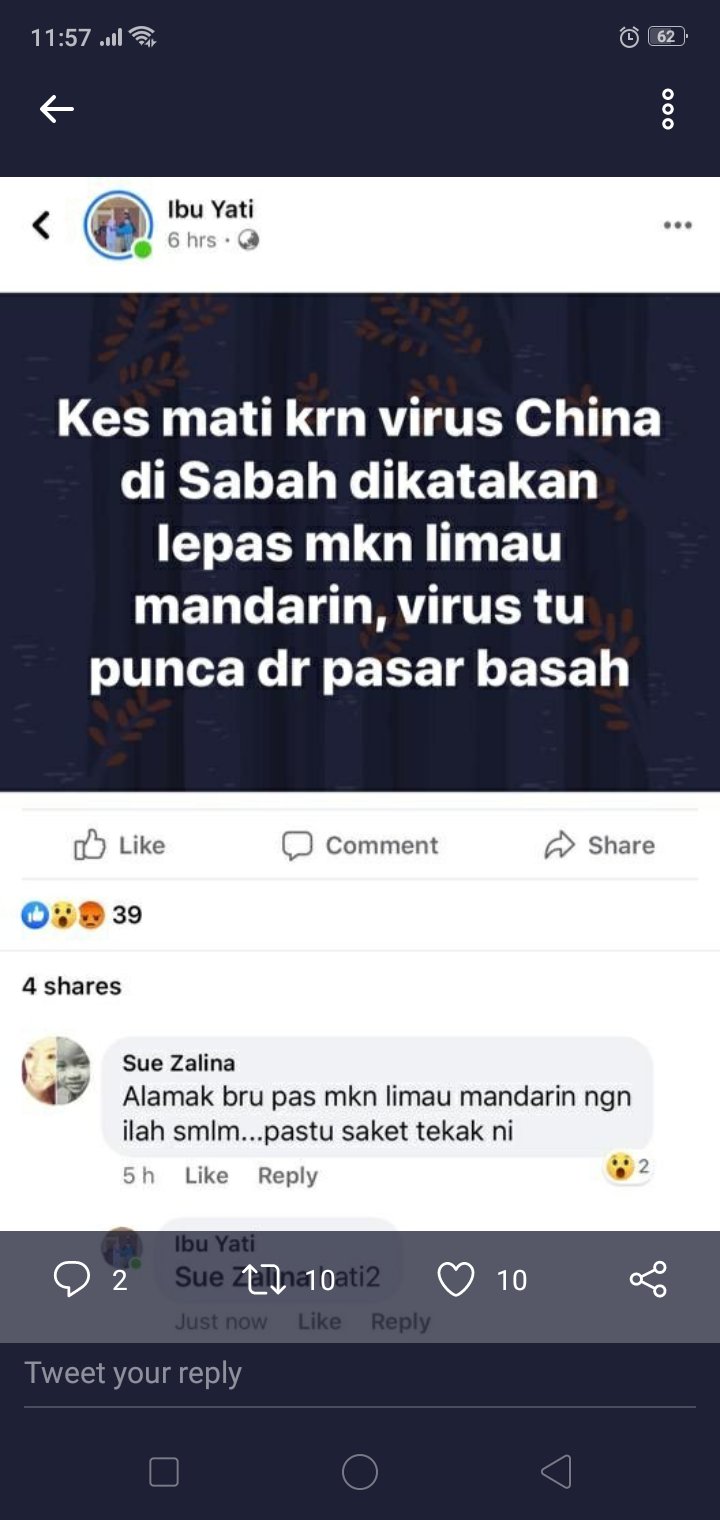
The post can be translated to: “A victim has died from the virus in Sabah after eating a mandarin orange.”
Image credit: @KittySn52889207
The rumour was reportedly started with claims that infected victims had consumed mandarin oranges before contracting the illness. This caused a lot of Malaysians to panic, with some even voicing out on social media to ban mandarin oranges from being sold in the country.

Image adapted from: @shuhairlaadumak
Ummu’s tweet about her schoolmates actively sharing this piece of fake news regarding mandarin oranges show how quick Malaysian youths are to accept any form of news sent their way.
Soon after, the Health Ministry stepped in and declared it to be fake news. According to The Star, the ministry urged Malaysians to not spread fake news on WhatsApp and other communication platforms or believe such rumours.
2. Eat more kangkung and drink 7 glasses of coconut water
In a recent news article posted by Sinar Harian, it was claimed that those who have been infected should drink up to 7 glasses of coconut water or warm lemon water on the first day. This is supposedly because the virus “takut air” or is scared of water.
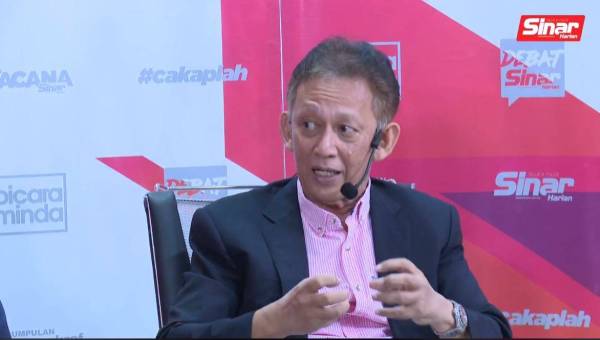
Dr Noordin Darus, the medical practitioner who made these medical claims that were later debunked by his peers.
Image credit: Sinar Harian
Dr Noordin Darus also shared that patients need to consume more healthy greens, which is when he proceeded to give kangkung as an example.
Many were sceptical of the advice given by Sinar Harian, which led Malaysians to seek the 2nd opinion of Dr Amalina Bakri – a Malaysian doctor based in the UK who’s best known for successfully treating a 9-month-old baby from germ-cell tumour.

Image credit: @dramalinabakri
Her tweet above can be translated to :
“Drinking plain water and eating vegetables need to be done by everyone as part of a healthy lifestyle to help avoid falling sick. However, no specific research has been done for the novel coronavirus regarding lemon water, coconut water, or kangkung.”
Malaysiakini also reported that the Health Minister has also come forth to say that it’s up to Malaysians if we want to take outside advice regarding the Covid-19 though the government still recommends the public to stick to the official guidelines.
According to the official advice given, we should frequently wash hands with soap, use face masks in public spaces, as well as cover our mouths and noses whenever we sneeze.
3. Stay away from Xiao Mi phones
A looming global pandemic like the Covid-19 can bring out the worst paranoia in some of us, as seen from these unfounded claims that one can contract the illness from Xiao Mi phones.

Image credit: @UPAN77
The tweet above can be understood as “Coronavirus spreads through Xiao Mi handphones.”

Image credit: @wisnuyto
Another Twitter user shares a similar sentiment, saying that you shouldn’t go near anyone who owns a Xiao Mi phone or you might just get infected with the virus.
While no official party has come out to debunk these claims, South China Morning Post has mentioned it when talking about the onslaught of fake news spreading across Malaysia. A useful tip to practice to save ourselves from unnecessary panic is to not generalise and assume that anything to do with China is a carrier of Covid-19.
4. Drinking bleach and rasam as a cure
In a write-up by South China Morning Post, a physician shared with the media outlet about some of the more ridiculous rumours that he had stumbled upon and it was that drinking bleach could cure the illness. He said that while drinking bleach can technically kill the virus, it’ll also kill a lot of your own cells too.
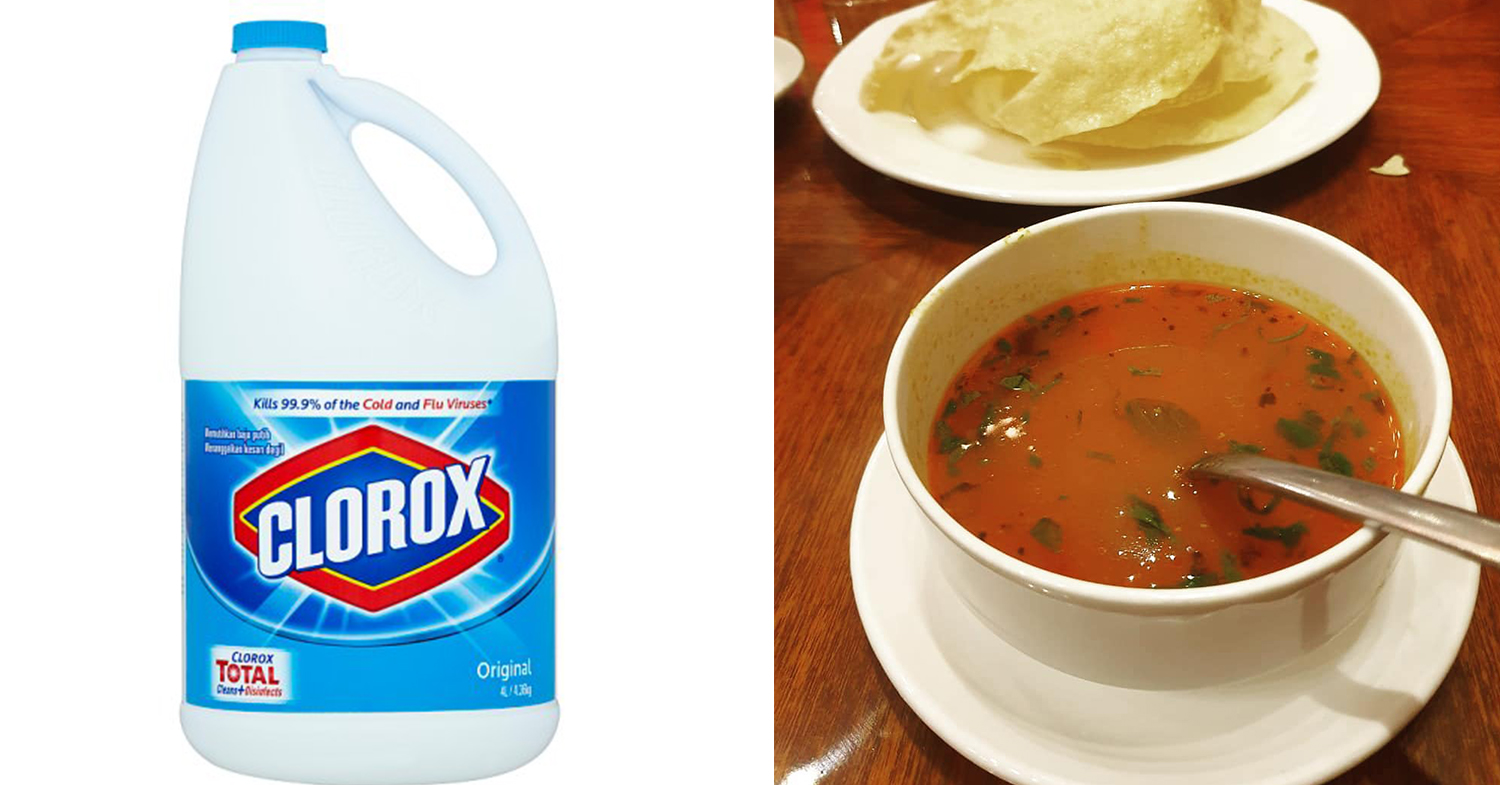
Image adapted from: Tesco and @cafe_review_101
Similar to drinking bleach, there have been other claims floating about saying that drinking rasam would have the same effects on the virus too. While the physician didn’t address this, we can logically assume that the South Indian spicy soup has no proven properties that can cure patients of the virus or prevent it.
5. False reports of cases in town
When it was reported that a Canadian teen collapsed at KLCC and a hazmat team was sent over to investigate, Malaysians began to steer clear of the building even though it was later confirmed that the teen in question was actually Covid-19-free. Soon after, more reports emerged claiming that there have been cases in Mid Valley and Sunway Cheras Hospital as well.
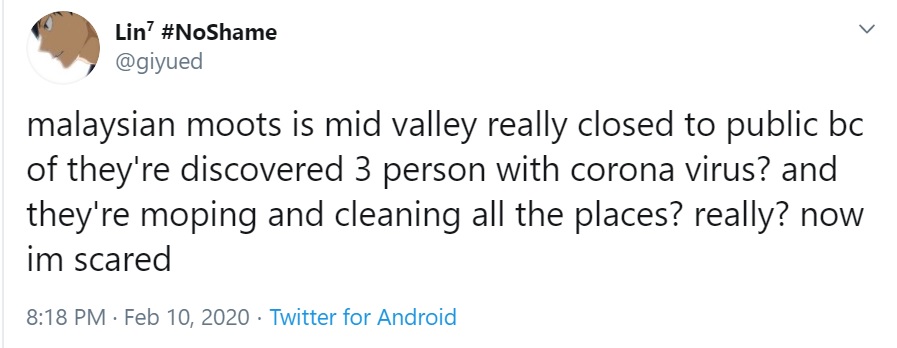
Image adapted from: @giyued
The tweet above says that Mid Valley was closed to the public after it was discovered that there were 3 victims of Covid-19 at the premise. It was also shared that cleaners were cleaning and sanitising every corner of the mall.
There were also reports of a case in Sunway Cheras Hospital, prompting Malaysians to avoid these 2 areas altogether. It wasn’t long before the Health Ministry stepped in once more to clarify this was fake news, as according to Malay Mail, no Covid-19 cases have been detected in those places.
6. A ship from Wuhan docked in Melaka
We’ve seen news on legit sources stating that China has placed the city of Wuhan on a tight lockdown in efforts to contain the spread of the virus. But some of us couldn’t help feeling anxious about rumours claiming a ship from Wuhan had entered the country via the straits of Malacca.
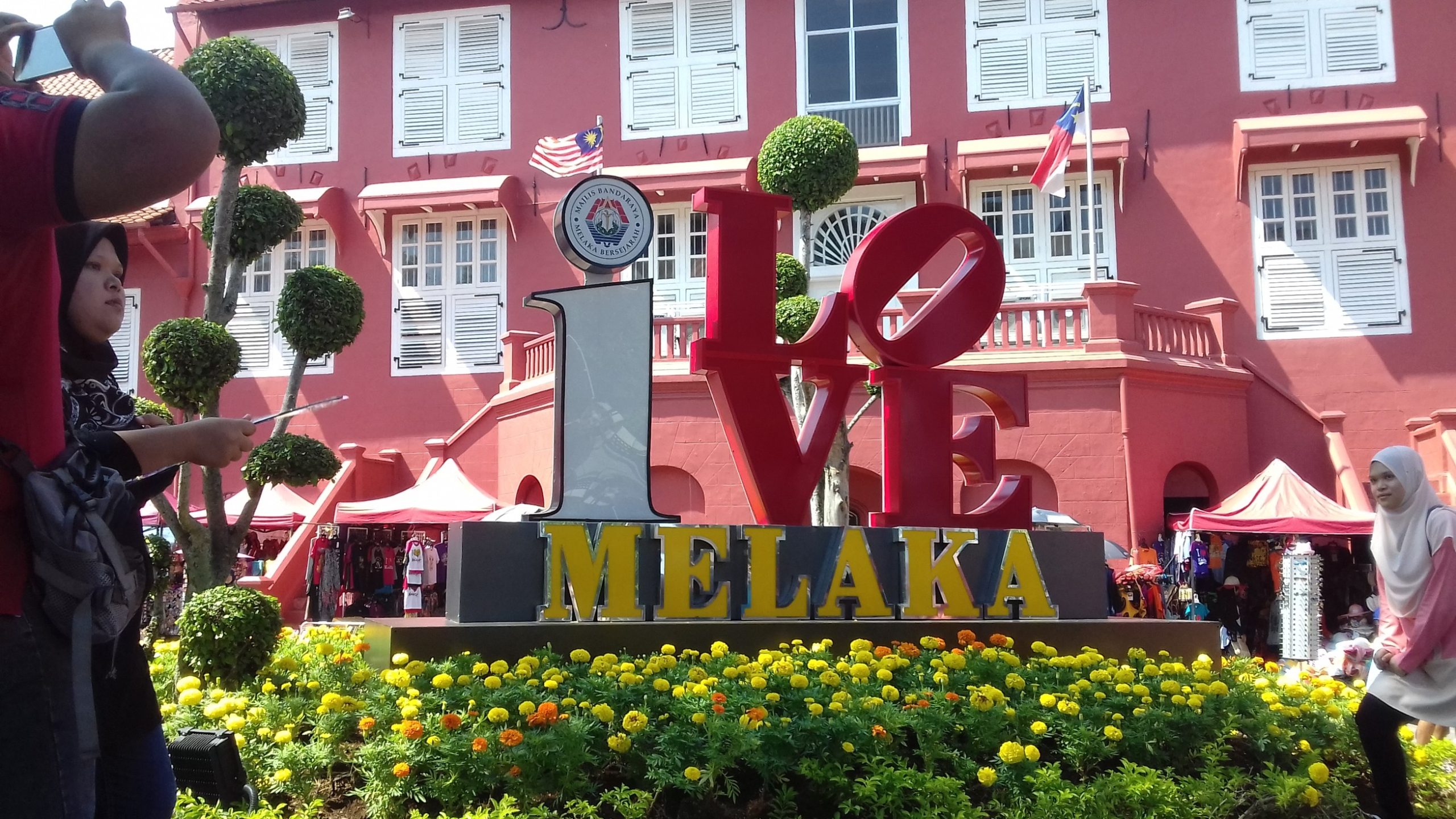
Image credit: Wikimedia Commons
It didn’t take long for the Melaka health director, Dr Ismail Ali, to make a statement and correct the previous claims made by saying that the ship was not from Wuhan. According to Bernama, he assured Malaysians that health screenings are done on all foreign crew members, especially those coming from China, who were arriving into Malaysia at every entry point into the country.
Have a keen eye for detecting fake Covid-19 news
Besides washing our hands every half hour and wearing a mask whenever we’re out, Malaysians also need to be better equipped to identify fake news. Not only can they wrongfully cause nation-wide panic, but they might also pose a threat to our racial harmony and unity.
The next time you come across a story or headline that sounds even the tiniest bit suspicious, take an extra minute to look up the sources and see if any reputable media outlets are saying the same.
Read up on other coronavirus-related news: